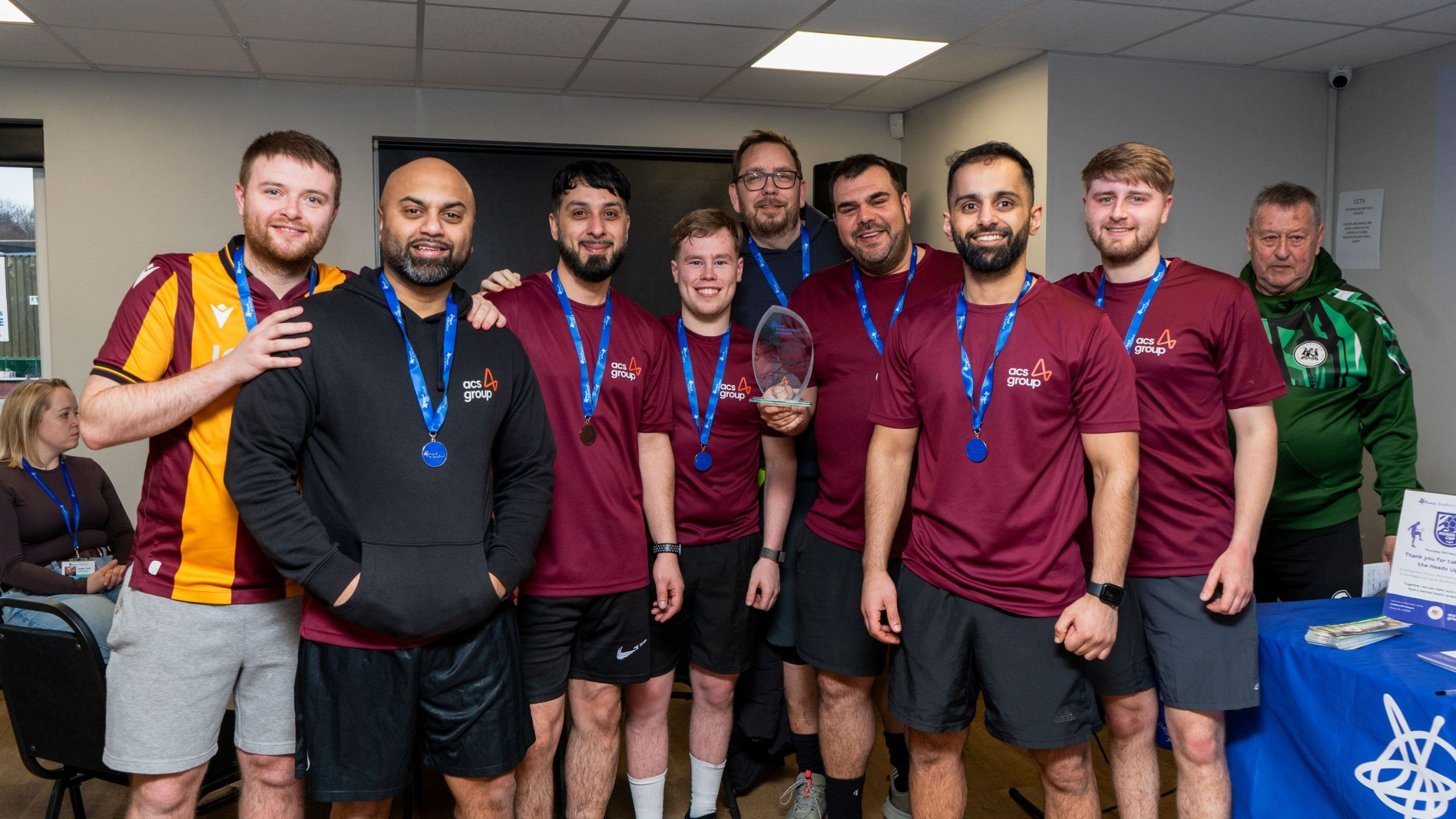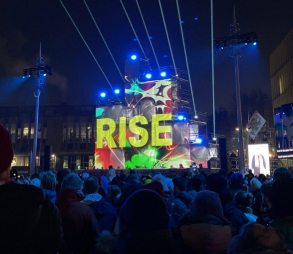Heads Up Cup scores big for mental health
Supporters of Bradford District and Craven Mind came together for an afternoon of football and […]
In a recent Construction News (CN) survey, 74% of employees in the industry agreed that there is a stigma around mental health in construction. Perhaps it comes from the traditional idea that construction is a ‘real-man’s job’, a harmful stereotype that doesn’t allow men much room for emotion – never mind proper acknowledgment of mental health problems.
For this blog we sat down with Clara Greensmith from Howard Civil Engineering to hear her first-hand experiences with mental health in the construction industry.
We started by asking her to recount a time she may have experienced or witnessed the effects of industry-wide stigmas in the workplace. Clara said that in her old place of work:

“It wasn’t accepted that any of the men who worked on the shop floor could have mental health issues or issues at home as the stigma of ‘they’re strong men’ was so strong within the workforce.”
And added that:
“They wouldn’t allow themselves to tell their seniors that this [needing time off to focus on their mental health] was the reason and would always say they had an appointment or were physically poorly instead, as they didn’t want to say the words ‘mental health.’”
When asked what she considers to be the biggest stigmas in the industry, Clara said:
So many people think it’s just a phase or that mental health shouldn’t matter, and they should just ‘get over it’.
“The tired idea that men are strong and don’t cry is damaging to lots of men who work in construction as the stigma is so bad, they think they’re doing something wrong by feeling negative thoughts and keep it all in their head which can cause lots of issues.”
CN found that 59% of people did not tell their employers the reason they needed time off was for their mental health, with the same percentage of workers agreeing that they did not receive the appropriate level of support from their managers when they were facing mental health issues.
I don’t think, even with the increased awareness that we have now, it would be accepted to say: ‘My mental health is poor today, so I need time off to work on it’. So many people still see illness as only physical illness and think mental illness is made up.
As the construction industry is male-dominated, it is important to recognise how hesitation to seek help can negatively affect men in the workplace. In a general study by Mind in 2020, it was found that 10% of men experienced suicidal thoughts as opposed to 7% of women.
Nicola Medalova from National Grid told CN that ten times as many people in construction die every year from taking their own lives than from occupational and industrial safety incidents. And while there has been a shift in willingness to open up about mental health issues in the industry, with 53% of employees saying they are comfortable talking about their mental health with their peers, there is still a long way to go to improve this.
Howard Civil Engineering has five office-based Mental Health First Aiders (MHFA), including Clara. They are known by all the staff within the company and are trained to spot signs of poor mental health while promoting the positive thinking of ‘If you need help, we’re here to help.’ Clara goes on to explain how she believes the way mental health is addressed in her company can be further improved:
“To spread more awareness and lessen stigmas, I believe site managers should be signed up to courses to help them spot signs and give basic support as they see their teams on site every day. If they can spot the signs, they can help, whereas us in the office can only really help if someone comes to us and says they need help. Within the industry as a whole, I think we should be encouraged to have at least one MHFA in every company.”
Just as a First Aider is law in every business, I think an MHFA should be too. This way we can spread more awareness and people may start to open up more.
Bradford district has an abundance of services and resources available to anyone struggling with mental health issues with one specifically aimed to aid men’s mental health, ‘Andy’s Man Club’; a safe, non-judgemental, confidential space for men to get together to talk about their problems and share support and advice.
The interview ended with Clara sharing some words of advice and encouragement for everyone in the construction industry who may be struggling with a mental health issue:
“Speak out. There is so much more acceptance of mental health now, find someone who can help you and speak to them. A problem shared is a problem halved and MHFA’s are trained to help. Always seek advice and help as things can only get better with help.”
Our free helpline Guide-Line is open every day 12pm-12am on 08001 884 884, our friendly team will be there to listen and provide confidential, emotional support.
If you’d like to empower your workforce to look after their mental health and wellbeing, we recommend investing in training:
For additional support, Lighthouse, The Construction Industry Charity, has a free 24/7 helpline and self-support app for anyone working within the construction industry and seeking support and advice on their physical, emotional and financial wellbeing.
Mind, (www.mind.org.uk, 17 December 2020) ‘Men’s Mental Health under Pressure as Suicidal Thoughts Double in Ten Years’
Thomas-Alex T and er, (Construction News, 23 June 2022), ‘Mind Matters: Construction Workers Reply to CN’s Mental Health Survey’
Posted on: 27th July 2022

Supporters of Bradford District and Craven Mind came together for an afternoon of football and […]

Reflections on the launch of Bradford 2025, UK City of Culture, from Ian, Trustee on […]

What’s really involved in being a trustee for a mental health charity? Find out from Ruth and Rosema.

Maryam is one of our volunteers at Bradford District and Craven Mind. She has kindly […]